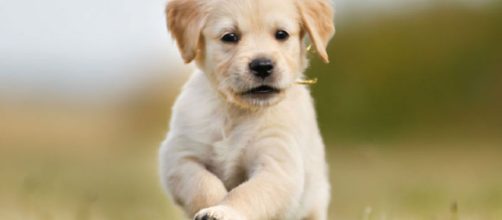The Conservatives announced today (February 8) that they are taking steps to stamp out cruelty in the breeding of puppies, with a "call for evidence on banning third-party puppy sales" as well as laying "down a raft of measures in Parliament to crack down on unscrupulous puppy breeders."
Today, we've announced a call for evidence on banning third-party puppy sales and laid down a raft of measures in Parliament to crackdown on unscrupulous puppy breeders, as we take further steps to raise the bar on animal welfare standards. pic.twitter.com/NEEIW2K84Z
— Conservatives (@Conservatives) February 8, 2018
16% of the dog population was sold via a pet shop
Puppy farmers are defined by the Kennel Club UK (an organisation which acts as governing body for various canine activities including dog shows, dog agility and working trials) as a "high volume breeder who breeds puppies with little to no regard for the health and welfare of the puppies or their parents."
According to the Kennel Club, around 16% of the current dog population in the UK were sold via a pet shop, which equates to around 1.5 million dogs.
The Kennel Club says these dogs are most likely to have been bred in the intensive conditions that come with puppy farm breeding.
As the main objective for a puppy farmer is profit, they tend to separate puppies from their mothers before the recommended time frame of eight weeks and ignore the guidelines regarding the maximum frequency of litters etc.
This causes both a great deal of emotional distress and physical ill health for the puppies and their mothers caught up in the breeding process. According to a survey carried out in 2014 for the Kennel Club Puppy Awareness Week, 38% of people who buy a puppy from a pet shop spend more on vets bills than previously anticipated.
The problem does not necessarily lie with pet shops, as online puppy sales and a range of other sales methods are also a cause for concern.
In total, 41% of people who bought a puppy between 2013-2014 did not see the puppy with its mother, and 53% did not see the breeding environment.
The Kennel Club recommends that the puppy is always seen with the mother prior to purchase and if there is any doubt aspiring owners can refer to the Kennel Club's Assured Breeder Scheme, which provides the most comprehensive and up-to-date list of breeders with pedigree puppies.
This is the latest in a long line of animal welfare reform
Since Michael Gove was appointed to the role of Environment Secretary in June 2017, he's been radical in delivering many essential and long overdue reforms.
Reforms have included legislation to introduce CCTV cameras into abattoirs, introducing tougher sentences for animal cruelty offenses, taking maximum sentences from six months to five years, and taking action to ban microbeads and tackle other forms of plastic waste, which are extremely harmful to marine life who often end up ingesting the plastic that ends up in our oceans.


